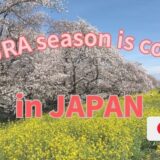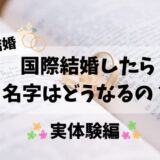Hello, this is Tomoemon.
In the past few days, many earthquakes have occurred near Chiba, Japan. Even people who have experienced earthquakes since they were small children get “scared” when there are a series of earthquakes or big ones in the same area. Those who are not used to earthquakes, who are visiting on vacation, are even more scared.
The Noto Peninsula earthquake that struck over New Year’s Day was particularly shocking. Therefore, I would like to introduce about “earthquake preparedness” for those who are not used to all earthquakes, because I think it is good to be prepared for earthquakes.
I apologize if I have posted a wrong translation, as there are many difficult words in this article.
🇯🇵こんにちは、ともえもんです。
ここ数日地震が千葉の近くで多く発生しています。小さい頃から地震を経験している人でさえ、同じ地域で地震が連発したり、大きな地震があると「怖くなります」。旅行で訪れている地震に慣れていない方は、もっと怖い思いをしていると思います。
特にお正月を襲った能登半島地震は、とても衝撃を受けました。そこで、地震について備えておいて損はないと思うので、全ての地震に慣れていない方への「地震の心構え」ついてご紹介したいと思います。
難しい単語が多く出てきているので、間違った翻訳を掲載してしまったら申し訳ありません。
目次
- Earthquakes occur all the time.(地震は常に起こっている)
- What happens in an earthquake.(今までの地震で起きたこと)
- If I were to encounter an earthquake. もし日本滞在時に地震に遭ったら
- 旅行者が地震のためにすぐにできること
- Important Japanese for Disasters.(地震時に大切な日本語)
- Actions after the earthquake.(地震がおさまった後の行動)
- How to spend time at the shelter.(避難場所が開いた時の対応)
- Summary. まとめ
Earthquakes occur all the time.(地震は常に起こっている)
According to earthquake information provided by the Japan Meteorological Agency and other sources, earthquakes are occurring in various parts of Japan, albeit on a small scale.
🇯🇵地震の規模は小さいけれど、気象庁などが発信している地震情報を見ると、規模は小さいながら日本各地で地震が起きているんです。
(引用:YaHoo!JAPAN 天気・災害様より)
I personally think that the magnitude of earthquake that I can feel is from intensity 3 (M2.5 or higher). But sometimes, even if the seismic intensity is 2, I still wonder if it is an earthquake. I sometimes feel “earthquake” even when the seismic intensity is 2.
🇯🇵自身が体感する地震の規模となると、震度3(M2.5以上)からかなと私個人としては思っています。でも時々震度2でも、「地震かな?」と思うこともあります。
What happens in an earthquake.(今までの地震で起きたこと)
A building is destroyed. (建物が壊れる)
TSUNAMI (津波がくる)
Have a road break. (道が壊れる)
Fire. (火事になる)
If I were to encounter an earthquake. もし日本滞在時に地震に遭ったら
When in a building. (建物の中にいるとき)
- Move away from anything that looks like it might fall over. 倒れそうなもののそばを離れる
- After the tremors subside, check emergency exits and follow staff instructions. 通常の出入り口が使用できない場合があるため、揺れが落ち着いたら非常口の確認、スタッフの指示に従う
- Defend one’s head. 頭を守る
When you are on a train or subway.(電車や地下鉄に乗っているとき)
- Hold on to the handrail in case of a sudden stop. 電車は揺れを感じたら急停車するため、手すりやつり革へ捕まり急停車に備える
- Follow directions. 乗務員の指示に従う
- Evacuate to the outdoors. 屋外へ速やかに避難する
When you are near a river or the ocean.(川や、海の近くにいるとき)
- Leave the waterfront immediately. 津波警報などのアラームが出ていなくても、とても危険なのですぐに水辺から離れる
- Run to higher ground. 高台へ逃げる
- Life is our top priority. Instagramや、Xのために絶対に水辺へは戻ってはいけない!
When riding in an elevator.(エレベーターに乗っているとき)
- Press all the buttons on the elevator. エレベーターのボタンを全て押す
- As soon as the door opens, get out of there. ドアが開いたらそこからすぐに降りる
- Use the stairs to escape outside. 階段を使って外へ逃げる
旅行者が地震のためにすぐにできること
Cash.(現金を持つ)
Power may be cut off after the earthquake, and credit cards and cashless payments may not be available. For this reason, I recommend that you carry a small amount of cash.
🇯🇵地震後に停電になり、クレジットカードやキャッシュレス決済ができなくなることがあります。そのため、現金を少額でも持つことをおすすめします。
Locate the embassy of your home country.(母国の大使館の場所の確認をしておく)
Many embassies are located in the 23 wards of Tokyo, so it is a good idea to check their locations. After all, in the event of a major disaster outside of your home country, you will be able to rely on the embassy of your home country.
For your information, the German Embassy is located in Minami-Azabu, Minato-ku, Tokyo.
🇯🇵多くの大使館は、東京23区内にありますので、場所を確認しておくと良いかと思います。やはり母国以外で何か大きな災害にあった場合は母国の大使館頼りになるかと思います。
ちなみに、ドイツ大使館は東京都港区南麻布にあります。
Bring shoes.(旅行の荷物の中に靴を準備しておく)
We will be wearing sandals more often in the spring and in the summer. I recommend that you bring at least one pair of shoes with you, as you may injure your toes if you only wear sandals.
🇯🇵これから春になって、夏になってサンダルの出番が多くなると思います。サンダルだけだと足先に怪我をすることがあるため、靴を1足でも持ってくることをおすすめします。
Important Japanese for Disasters.(地震時に大切な日本語)
As Hagemaru often says, the Japanese language is complex. It is also rich in expression. Therefore, several words are sometimes used to describe a single action.Please check this one.
🇯🇵ハゲ丸もよく言っていますが、日本語は複雑です。そして表現が豊です。そのため一つの動作を表すために、複数の言葉が使われることもあります。日本人でも、困る部分でもありますが・・・(笑)
これだけは覚えてほしい!または、スクリーンショットしてデータとして持っていて欲しい言葉を厳選したので、ぜひチェックしてください!
Protect one’s head.(頭を守る)
In the event of a major tremor, objects may fly or fall from unexpected places. Please protect your head first.
🇯🇵大きな揺れの場合は、予期せぬところから物が飛んできたり落ちてきたりします。まずは頭を守ってください。
Check with others around you to see what’s going on.(周りの人に状況を確認する)
●What just happened?
今何が起きていますか?=Ima nani ga okiteimasuka?
●Where can I escape to?
どこへ逃げたらいいですか?=Doko he nigetara iidesuka?
● I have been injured. Where is the hospital?
怪我をしました。病院はどこですか?= Kega wo shimasita. Byouin ha dokodesuka?
Check the phone number of the place where you will be staying.(宿泊しているホテルがあれば電話番号の登録を!)
If you have a hotel where you are staying, we recommend that you register your emergency contact number on your smart phone for the duration of your stay. You may be called to confirm your safety in the event of an emergency.
🇯🇵宿泊しているホテルがあるなら、滞在期間は緊急連絡先の番号をスマートフォンに登録しておくことをおすすめします。緊急時に安否確認のために電話があることがあります。
Actions after the earthquake.(地震がおさまった後の行動)
Information.(お知らせを聞く)
Listen to the TV or radio for announcements! Or, check with others around you to find out what is happening. Immediately after a major earthquake, it will be difficult to connect to the Internet.
🇯🇵テレビや、ラジオでお知らせを聞いてください!または、周りの人へ状況を確認してください。大きな地震直後はインターネットがつながりにくい状態となります。
Attention.(注目してほしい言葉はこれ!)
- TSUNAMI! Takai tokoro ! 津波がくる!高いところへ逃げて!
- NIGETE! 逃げて!
Blackout. (無駄にスマートフォンを使わない)
In the event of a power outage after an earthquake, electricity is a very valuable source of energy. Please stay off your smartphones as much as possible.
🇯🇵地震後に停電となった場合、電気はとても貴重なエネルギーとなります。なるだけ、スマートフォンを使わずに過ごしてください。
How to spend time at the shelter.(避難場所が開いた時の対応)
Please take off your shoes. (避難所のほとんどは土足厳禁です)
A shelter is a “place to escape. Many shelters prohibit the use of shoes, so please be sure to remove your shoes.
🇯🇵避難所とは、「逃げるところ」です。土足禁止のところが多いため、靴を必ず脱いでください。
Follow management’s instructions.(避難所の管理者の指示に従う)
I will use a shelter in my area as an example, but there is probably someone in the position of administrator in setting up the shelter. Please follow the instructions of that person.
🇯🇵私の地域の避難所を例に紹介しますが、おそらく避難所を開設するにあたり管理者という立場の人がいると思います。その人の指示に従って行動してください。
Summary. まとめ
Japan has four seasons: spring, summer, autumn, and winter. There is also delicious food.
There is also a lot of fun culture such as anime and video game arcades. I think it would be safer and more enjoyable if you also look up information on earthquakes and other disasters when planning your trip.
Thank you!
🇯🇵日本は四季折々で、どの季節に訪れても楽しめる素敵な国だと思います。そして、アニメや食べ物、たくさんの文化があります。旅行の計画するときに、地震のような災害時の確認もしておくと、より安全に過ごせると思うので確認してみてください!
最後までお読みいただきありがとうございました


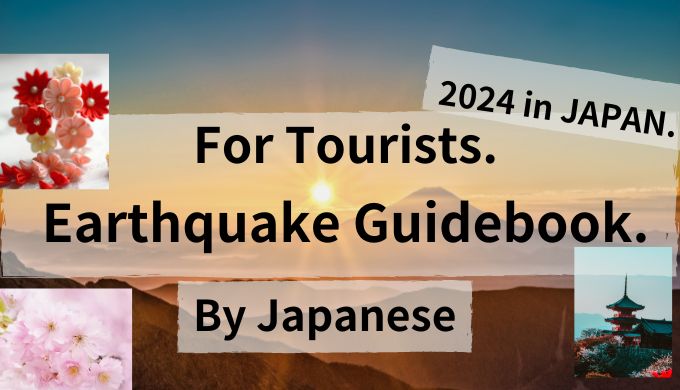
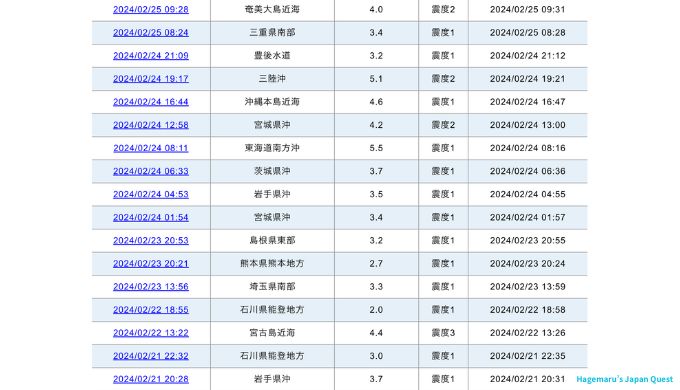



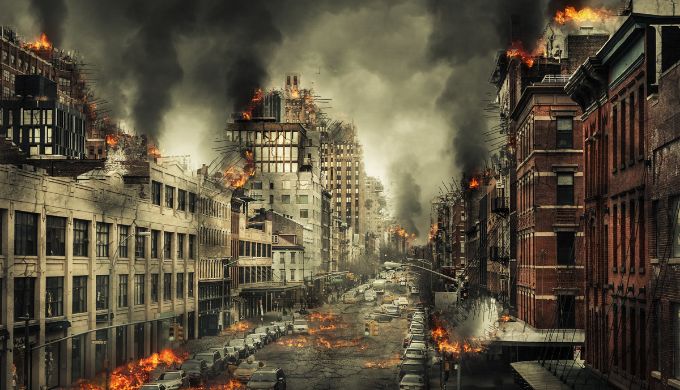

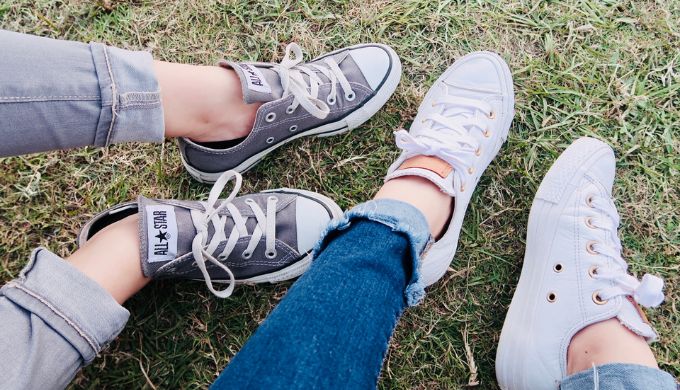

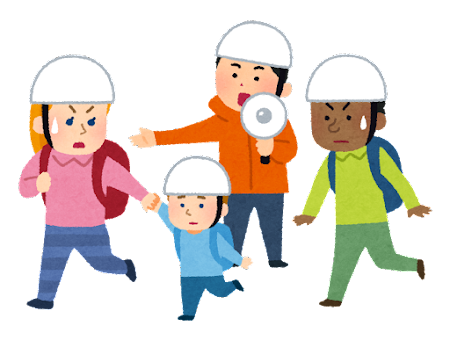

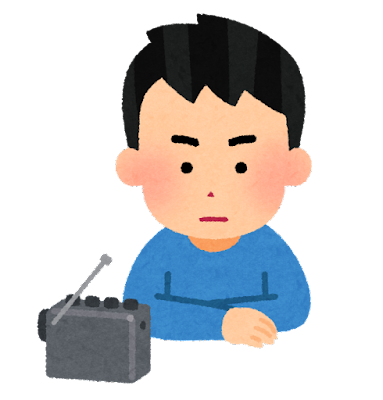
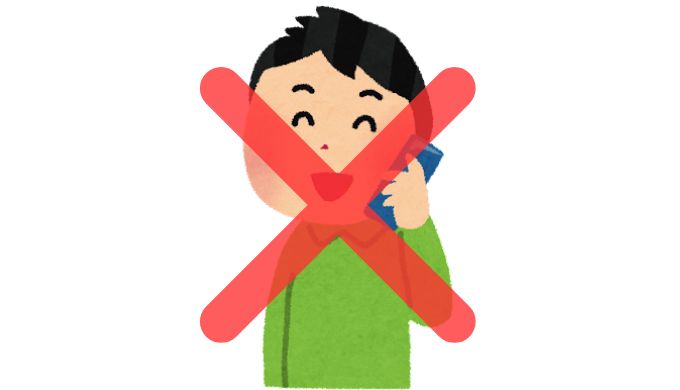



 ランキングに参加しています!ポチッとお願いします
ランキングに参加しています!ポチッとお願いします